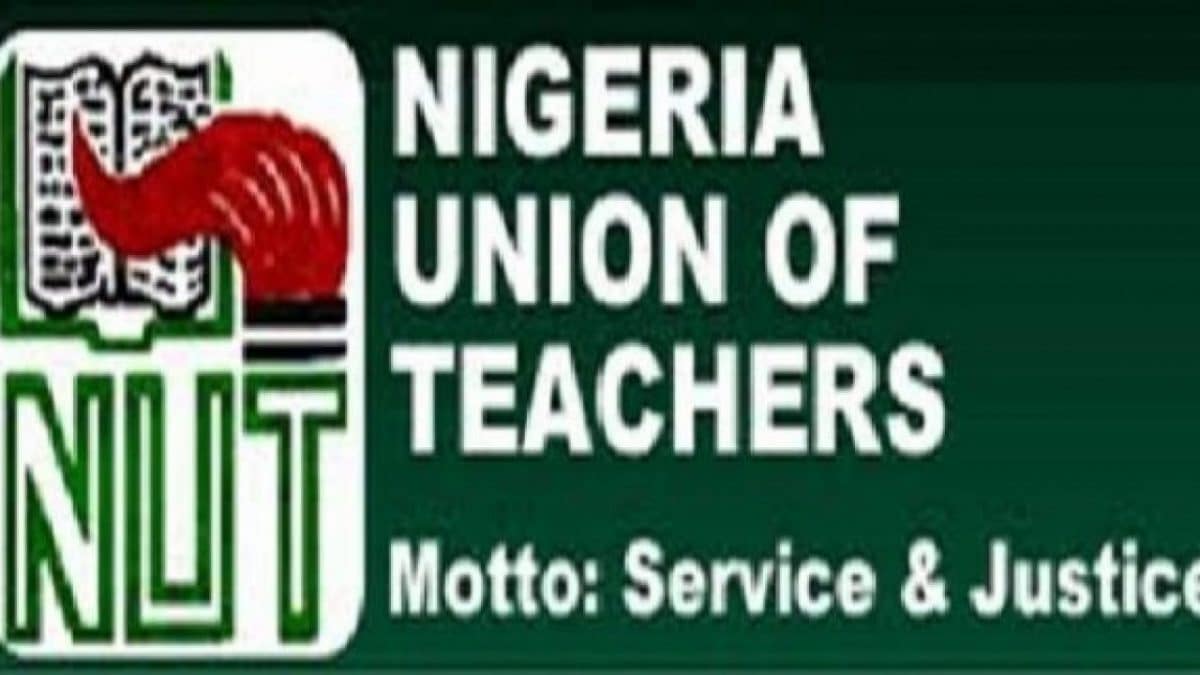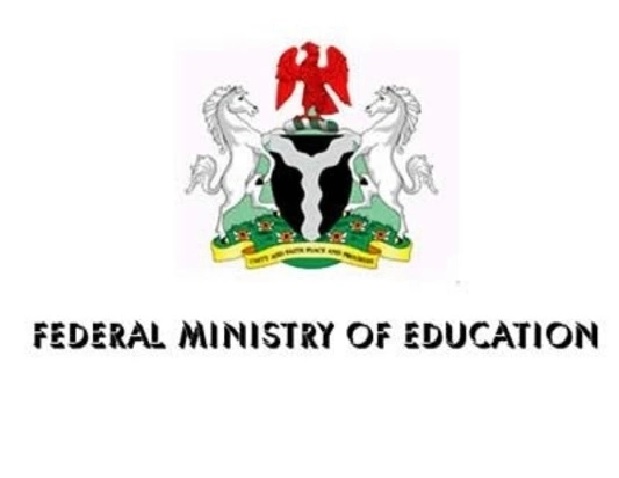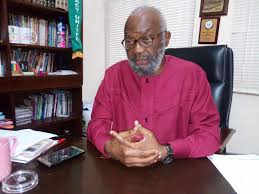Education
NUT Reaffirms Commitment to Teachers’ Professional Development in Kwara

From Abdullahi Abubakar, Ilorin
The Nigeria Union of Teachers (NUT), Kwara State Wing has restated its commitment to strengthening the professional growth of teachers across the State, to enhance the quality of education delivered in public schools. Speaking at the opening of a three-day capacity-building workshop in Ilorin, the State Chairman of the Union, Comrade Yusuf Wahab Agboola, noted that continuous training of teachers remains a vital component of educational reform and improved classroom delivery.
The training, organised in collaboration with the NUT National Secretariat, is targeted at selected teachers and focuses on the “Study Circle Conveners’ Model”—a grassroots strategy for enhancing peer-to-peer learning and participatory leadership within the education sector.
Comrade Agboola explained that the workshop aims to equip teachers with practical skills in collaborative learning, peer engagement, and innovative teaching practices. He expressed optimism that the training would promote professional bonding among teachers and foster collective solutions to challenges facing the education sector.Also speaking at the event, the National Coordinator of the NUT Study Circle Project, Comrade Solomon Igbelowowa, traced the initiative’s roots to 1985 when it was introduced in Nigeria by the Swedish Teachers Association, having recorded success in Sweden and other parts of the world. He commended the Nigerian Union of Teachers for sustaining the project over the years and urged participants to engage fully and make the most of the training opportunity.
The workshop was officially declared open by the National President of the NUT, Audu Amba, who was represented by the 3rd National Vice President, Bashir Oyewo.
He encouraged teachers to approach the sessions with dedication and punctuality.
Education
UNICAL VC Promises to Resolve Dentistry Students’ Crisis

From Ene Asuquo, Calabar
The Vice Chancellor of the University of Calabar, Prof. Florence Obi has promised that she would do everything humanly possible to ensure that the ongoing crisis in the institution’s Department of Dentistry, is resolved.
Prof.
Obi made the promise in Calabar during a press briefing, stressing that she will resolve the crisis before leaving office.She explained that the problem predates her administration, and pledged to intensify efforts to rectify the crisis.
She added that the crisis was as a result of the Medical and Dental Council of Nigeria (MDCN)’s refusal to induct 2016 Dentistry students of the institution.She also debunked claims circulating on social media that the institution’s Dentistry programme has lost its accreditation, describing the reports as “misinformation and distortion of facts,” clarifying that the programme remains fully accredited and no students have been directed to transfer to other universities.
“At no point did the University ask Dentistry students to seek transfers to other institutions, nor were they advised to ‘go and learn a trade’ as falsely alleged online,” the VC stated.
“I will feel very bad if I leave without solving this problem and the students are left hanging without knowing their fate. I won’t be fulfilled,” she said.
She reaffirmed the University’s commitment to ensuring all Dentistry students graduate and are duly licensed as dental surgeons.
She noted that the Dentistry programme commenced in the 2013/2014 academic session, and in November 2019, the University secured pre-clinical accreditation from the MDCN and full clinical accreditation was subsequently granted in December 2022.
The VC added that the university’s synergy and partnership with the Minister of Education and the Tertiary Education Trust Fund (TETFund) to upgrade its facilities.
“All we asked for is time to engage with other institutions, update the Medical and Dental Council of Nigeria (MDCN), and follow through on due processes,” she noted.
Speaking further, Obi said that some of the affected students demanded to be transferred to the Department of Medicine and Surgery but said it was not the solution as the department was already saturated.
She urged the affected students to remain calm, noting that the university was doing everything possible to resolve the issues before the end of her tenure.
Education
JAMB Sets 150 Cut-off Mark for University Admissions

By Tony Obiechina Abuja
The Joint Admissions and Matriculation Board (JAMB) has fixed 150 as the minimum cut-off mark for admission into Nigerian universities for the 2025/2026 academic session.
The decision was reached on Tuesday during the 2025 Policy Meeting on Admissions, held at the Bola Ahmed Tinubu International Conference Centre in Abuja, with stakeholders from various tertiary institutions in attendance.
According to JAMB, 140 was approved as the minimum score for colleges of nursing sciences, while polytechnics, colleges of education, and colleges of agriculture will admit candidates with a minimum score of 100.
“The minimum admissible scores for admissions for the next academic session have been fixed at 150 for universities, 100 for polytechnics, 100 for colleges of education, and 140 for colleges of nursing sciences by the stakeholders (Heads of Tertiary Institutions),” JAMB announced via its official X account.
Education
FG Unveils Reports to Guide Policy Reforms for Girls’ Education

Torough David, Abuja
The Federal Ministry of Education has unveiled two strategic knowledge products, aimed at delivering inclusive, equitable, and quality education for all girls.
At a One-Day Dissemination Session on Strengthening Girls’ Education in Nigeria in Abuja on Wednesday, the Minister of State for Education, Prof.
Suwaiba Ahmad emphasised that the evidence from the reports would guide policy reforms and investments.The two projects are: “State of Girl-Child Education in Ten States of Nigeria’’ and “Analysis of State-Level Financing of Girl-Child Education in Nigeria’’.
Ahmad also announced plans to roll out a new initiative aimed at getting more out-of-school girls back into classrooms.
“These two knowledge products are strategic investments and tools designed to help us collectively.
“It will help us understand where we are, what we must change, and how we must act to ensure every Nigerian girl can access, remain in, and thrive through education,” she said
She said the Girls’ Education Performance Assessment report offered a comprehensive review of progress at both federal and state levels.
This will help highlight successful policies that have improved enrollment, retention, and learning outcomes for girls through community engagement and donor support.
Ahmad added that the Girls’ Education Financing in Nigeria would examine public and private resource allocation, disbursement, and utilisation.
“It is imperative that we move toward gender-responsive budgeting, efficient resource utilisation, and stronger coordination between federal, state, and local governments,” she said.
The Minister appealed for collaborative action, urging stakeholders not to let the new reports “die by dust on shelves, but to transform them into effective policies, budgets, and partnerships that would drive change’’.
Also, the Chief Executive, Malala Fund, Nabila Aguele, who spoke virtually, reaffirmed the organisation’s commitment to supporting Nigeria’s education sector.
Aguele urged policymakers to translate new evidence on education financing and girls’ schooling into concrete and gender-responsive reforms.
“Today’s event marks a significant step forward in our collective effort to advance girls’ education in Nigeria.
“The knowledge products being shared are not just reports. They are tools for actions, that will give us the evidence we need to make more informed, equitable, and impactful decisions for Nigeria’s girls and, ultimately, for all of us,” she said.
Speaking on the State Girl-Child Education in 10 states, Mr Sunkanmi Adefadoju, Monitoring and Evaluation Consultant at System Strategy and Policy Lab (SSPl), called on the need to improve infrastructure and safety of girls.
Adefadoju said that findings revealed a wide disparity in education budget allocation in the 10 states reviewed.
“Education budget in the 10 states has wide disparities. Jigawa (32 per cent), Kano (31 per cent), Kaduna (26 per cent), which demonstrates strong commitment, while Akwa Ibom (6 per cent), Sokoto (8 per cent) and Gombe (9.8 per cent) allocate minimal share to education.
“There is lack of dedicated budget lines for girls’ education in most states which means that interventions are not consistently promised or sustained.
“For example, Borno supports girls with incentives in all JSS and cash transfers in 90% per cent, while Sokoto and Jigawa have no targeted programme.
“Akwa Ibom spends only 6 per cent on education with no funds specifically for girls, which shows a gap between policy and action,” he said.
He, therefore, recommended a scale-up of incentives and cash transfer by institutionalising scholarships and school feeding programme in schools.
He also recommended the strengthening of budget and emergency preparedness for states.
The event brought together 10 State Commissioners of Education, partners from the Malala Fund, Civil Society Organisations (CSOs), representative from UNESCO, and other key stakeholders.
FG Seeks Support to Scale up Water Testing Kits
The Federal Government on Wednesday appealed to development partners to support the large-scale production and distribution of hydrogen sulphide (H₂S) vials used for water quality testing across the country.
Director of Water Quality Control and Sanitation at the Federal Ministry of Water Resources and Sanitation, Elizabeth Ugoh made the appeal during the quarterly meeting of the National Core Group on Water Quality in Abuja.
She explained that H₂S vials, which were used to detect bacterial contamination, particularly from faecal matter, had already been piloted in UNICEF-supported states with promising results.
Ugoh said the ministry had planned a comprehensive needs assessment to guide national scale-up, but efforts have been limited by inadequate funding.
“We were advised to intensify awareness and demand creation, but many states cited lack of funding as a major constraint. In January, we could only produce enough kits for four or five states,” she noted.
While ministry laboratories had the capacity for production, Ugoh stressed that expanding operations without external support remained difficult.
She noted that most vials currently used in community-based water monitoring were supplied by UNICEF, raising concerns about sustainability after a broader national rollout.
She called for strategic partnerships and highlighted the potential role of the ministry’s Public-Private Partnership (PPP) unit in mobilising support.
Also speaking at the meeting, Dr Bolu Onabolu of the Network of Female Professionals in WASH pointed to poor sewage management as a key factor contributing to rising nitrate levels in water sources.
She recommended reviewing the technical guidelines of the National Water Resources Institute to address safe containment systems, especially in areas with high water tables.
Onabolu called for enhanced collaboration with the National Task Group on Sanitation, better enforcement from Environmental Health Officers and Town Planners, and stronger public awareness on the health risks of improper faecal waste disposal.
“Many households make cost-based decisions without realising the groundwater contamination risks.
“We need a coordinated communication strategy to drive behaviour change,” she said.
Ibe Chinedu of the FCT Water Board urged the inclusion of private water producers in stakeholder dialogues.
He raised concerns about low pH levels in several bottled water brands, attributed to reverse osmosis treatment, and called for clear regulations on remineralisation.
He also cited contamination risks from illegal pipe connections, poor consumer practices, and seasonal factors affecting water quality.
Presenting findings from a national water quality assessment, Mr Babalola Emmanuel, Chief Scientific Officer at the ministry, revealed high levels of contamination across several states.
He listed excessive concentrations of fluoride, ammonia, cyanide, cadmium, lead, arsenic, mercury, and nitrate, with nitrate detected at 156 sites in 17 states.
He said a validation exercise would be carried out using representative sampling, and a technical report would be developed ahead of wider stakeholder engagement.
In an interview, Obinna Ogbodo, Sanitation and Hygiene Coordinator at WaterAid, said that ensuring water quality was vital to public health and sustainable development.
He said climate change was already worsening water contamination and limiting access to safe drinking water in many areas.
Ogbodo added that WaterAid was working with government institutions and local partners to strengthen water safety plans, improve hygiene behaviour change, and support climate-resilient WASH infrastructure.
He said the organisation was also contributing to national policy dialogue and building local WASH capacity to ensure inclusive access to water and sanitation, particularly for marginalised communities.
The meeting brought together representatives from federal and state governments, development agencies, NGOs, and water quality experts.
| ReplyReply allForwardAdd reaction |





















